2018 has been politically dismal, but buoyant on the literary front, and the confluence of these two things have made this a year in slow reading for me. During the most difficult time in my life, when I left my home country 20 years ago, I only had one short story collection with me. It was a Julio Cortazar collection of short stories. I read it over and over, especially the short story “La autopista del sur.” I found solace in reading the same plot, but also in the fact that as I read something abstract seemed to be gaining intractable solidity. I found silly hope in the way life stalled completely in the middle of that surreal and interminable traffic jam just outside of Paris in “La autopista del sur.” I felt joy reading over and over that life emerged out of the strangest circumstances. That if traffic stopped for long enough, the stuff of life would come forward: suicide, love, pregnancy, a break up. I found joy too in the way lives broke apart just as suddenly, once the traffic began once again to move.
There is an exciting moment when one part of reality crumbles and a new one can emerge—that’s what I learned from reading this story on repeat.
I have been often distracted, dismayed by political outcomes and procedures this year, but I have remained blissfully absorbed in the only thing that matters the most to me—books.
When I think back to my year in reading, I am infinitely grateful to a number of books that gave me joy in one way or another.
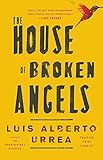


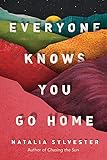
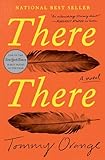
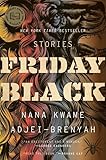
There was Rebecca Makkai’s sublime The Hundred Year House and Luis Alberto Urrea’s House of Broken Angels—this last written in the liminal heaven between Spanish and English; my kind of heaven. There was Viet Thahn Nguyen’s expansive anthology The Displaced: Refugee Writers on Refugee Lives. I finally got to Nguyen’s short story collection The Refugees, which I have not been able to move on from let alone forget. I loved Natalia Sylvester’s Everyone Knows You Go Home. Tommy Orange’s There There and Nana Kwame Adjei-Branyah’s Friday Black were important to me. Friday Black is unnerving and wild, satirical and masterful. I’ve been pushing into the hands of everyone I meet, describing it as Get Out meets Black Mirror—I may be obsessed. There There is such a gorgeous book. It is bold and unforgettable—a work of stunning imagination from its preface to last line. I closed this book in late June but continue to feel reverberations from it—thinking at odd moments about its expression of land as memory lost, and its people as people unmoored.



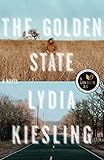
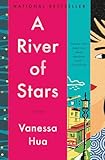
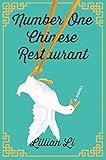
Six women and their books are foremost on my mind. R.O. Kwon’s powerful The Incendiaries—a fuse of a novel about the chasm of losing faith and going off the deep end of belief—is a profound meditation on faith and losing faith. Crystal Hana Kim’s If You Leave Me—which opens in Korea during the civil war—had me thoroughly impressed, heartbroken, wedded to its world. All You Can Ever Know by Nicole Chung startled me. This memoir about interracial adoption and the unshakeable ties of family is inexhaustibly insightful. Lydia Kiesling’s The Golden State, about a mother and a baby and a road trip, is visceral, deliciously smart, and stirred up my all my emotions at once. Vanessa Hua’s River of Stars, about a pair of Chinese immigrant woman searching for and contending with the reality of the American dream, was luminous in the way that all of Vanessa’s writing is luminous to me. And Lillian Li’s Number One Chinese Restaurant, following the life inside a restaurant, is so exuberant it makes me downright excited for this writer and all the books she will come to write.

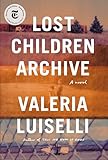
I am also dying one sentence at a time by Alexander Chee’s How to Write an Autobiographical Novel. Organized around the nature of writing and the basic operation of the craft of story, this is a book about life itself. I believe in this book so much I find myself opening it at random as if it were an oracle. I recently finished Valeria Luiselli’s Lost Children Archive, which I may have lost my mind over.

Lastly, I’ve been rereading One Hundred Years of Solitude all year. It’s something I do sometimes. Read and reread sentences one at a time. Open the book at random. Try to shake something true out.
More from A Year in Reading 2018
Don’t miss: A Year in Reading 2017, 2016, 2015, 2014, 2013, 2012, 2011, 2010, 2009, 2008, 2007, 2006, 2005
The post A Year in Reading: Ingrid Rojas Contreras appeared first on The Millions.
from The Millions https://ift.tt/2SSPBGc
Comments
Post a Comment